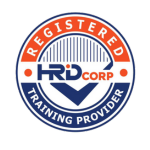- Tongle Editor
- March 21, 2025
As an editor, I often hear trainers share the struggles of employees during workshops. One story that stuck with me was about William (not his real name), an employee who was told in a performance review that he needed to “be more positive.” What seemed like simple feedback turned into a much deeper conversation about workplace culture, toxic positivity, and the importance of creating spaces where employees can be honest about their struggles.
When Positivity Feels Forced
It started as a routine check-in.
"You’re doing great," William’s boss said with a reassuring smile. "But I need you to be more positive."
He nodded, caught off guard. What did positivity have to do with his work? William wasn’t complaining—he was being practical. He met deadlines, spotted potential problems early, and helped his team stay on track. But somehow, that wasn’t enough.
After that conversation, he started noticing it everywhere—the “good vibes only” posters in the breakroom, the overly cheerful emails, the way real concerns were brushed aside in meetings. It wasn’t just encouraged to stay positive; it was required.
Whenever he mentioned heavy workloads or burnout, he was met with, “Let’s keep the energy up!” or “We’ve got this!” instead of real support. Slowly, he learned that struggling wasn’t an option. If he admitted he was overwhelmed, he risked being seen as a problem.
The Rise of Toxic Positivity
At first, it seemed harmless—who wouldn’t want a workplace full of positivity? But William started to realize that toxic positivity was creeping in.
It wasn’t that challenges didn’t exist; it was that no one was allowed to talk about them. Real conversations were replaced with forced enthusiasm, and the pressure to stay upbeat at all times felt suffocating. The result? Employees silently burning out while pretending everything was fine.
The Hidden Consequences
Over time, the effects became clear. People hesitated to raise concerns, afraid of being labeled as complainers. Workloads increased, but admitting exhaustion meant you simply weren’t resilient enough. Instead of creating a thriving workplace, this relentless optimism hid the stress bubbling beneath the surface.
Finding the Right Balance
Then, something changed. William’s company brought in Tongle for a workshop on mental well-being. The trainer spoke about resilience—not as just “pushing through” but as acknowledging struggles and working through them together.
William finally felt seen. He wasn’t alone in feeling this way. Others shared how they, too, felt pressured to “stay positive” at the expense of honesty. The session helped employees see that true positivity doesn’t ignore struggles-it embraces them with openness and support.
Creating a Workplace That Supports Real Conversations
That workshop was a turning point. William learned that a healthy workplace is one where employees can be real—where optimism and authenticity go hand in hand.
Through customized workshops, stress management programs, and leadership training, Tongle is helping companies move beyond toxic positivity to create spaces where employees feel truly heard. Because true positivity isn’t about masking reality—it’s about building a culture of care, honesty, and support.
That’s where Tongle steps in. With its Employee Assistance Portal (EAP), Tongle helps organizations cultivate workplaces where employees can voice concerns without fear of being labeled as negative. It’s about fostering environments where well-being isn’t just a buzzword but a commitment to real support. A workplace where employees aren’t told to “just think positive” but are instead asked, “How can we help?”
Ready to transform your workplace? Let Tongle help you build a space where employees thrive, not just survive.
📩 Email us or WhatsApp us today to learn more about our customized workshops and support programs like EAP!





